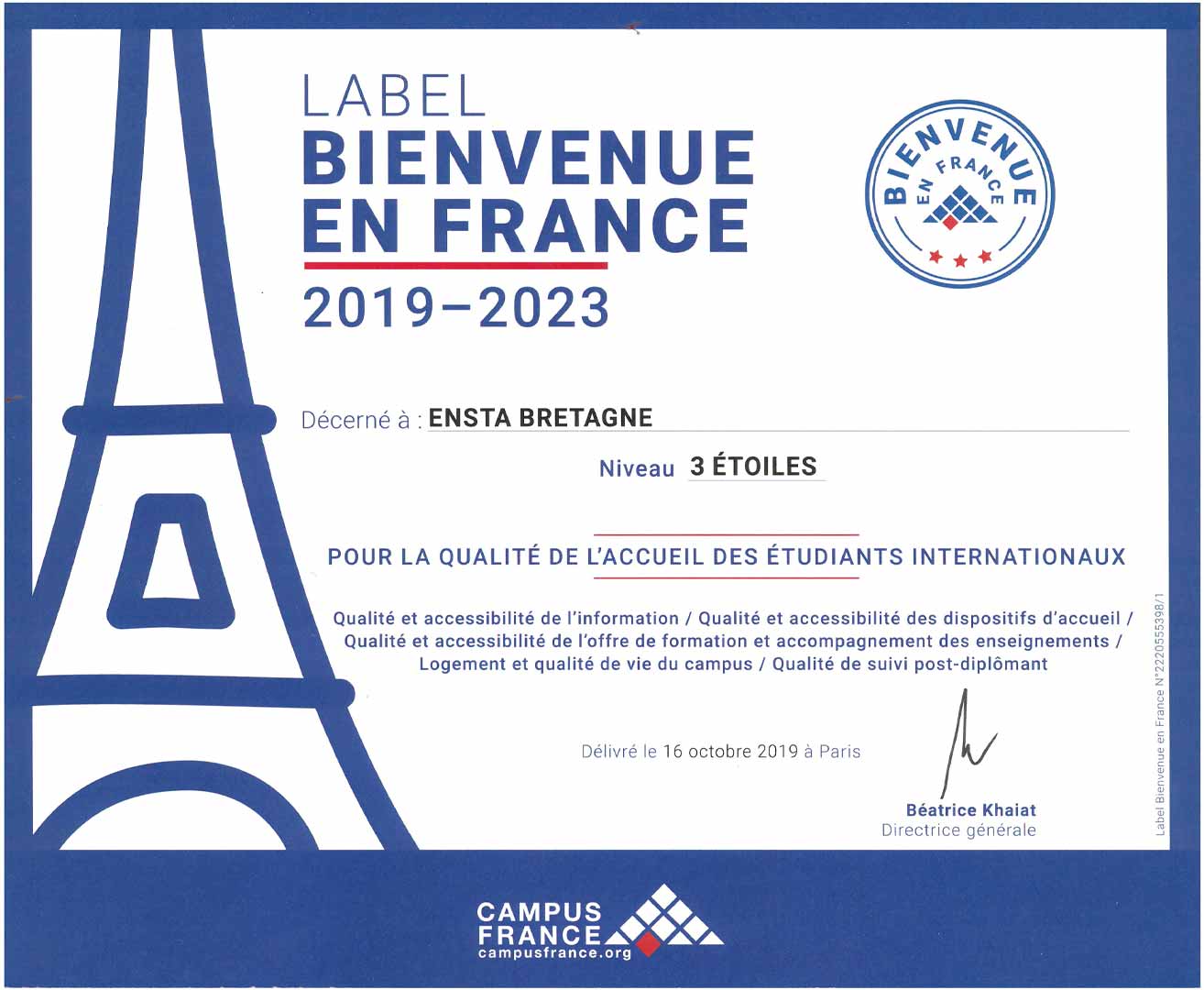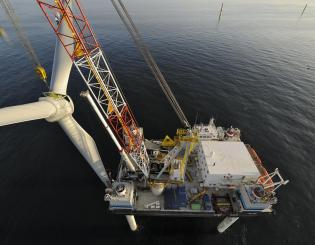
Accreditation "Welcome to France" with 3 stars
The results of the second round of awards are just out. ENSTA Bretagne has achieved the top level of recognition, by being awarded 3 stars, and is now in the elite of engineering schools in France having obtained this distinction.
To prove the quality of international students’ reception in the establishments, the candidates for the “Bienvenue en France” or “Welcome to France” award must satisfy 20 exacting criteria organized into 5 main categories:
- Quality and accessibility of information
- Quality and accessibility of reception facilities
- Quality and accessibility of education
- Accommodation and quality of life on campus
- Quality of post-graduation follow up
ENSTA Bretagne answered all the questions and provided all the proof required in the application file to demonstrate the quality of its student reception of students, in particular its international students.
ENSTA Bretagne, a world-class school
- 20% international students on Brest campus
- 100% student engineers have extensive international experience during their training
- ENSTA Bretagne is part of a network of 90 partner universities in 30 countries and offers numerous double degrees.

Learning French
Helping international students learn French
Summer intensive courses
Upon arrival on campus in August, all non-Francophone students begin their school year a little earlier than their Francophone counterparts by following an intensive FFL course (3 hours/day).
Besides improving their knowledge and use of French, these classes are designed to help students understand the French higher-education system and adapt to life in France. They aim not only to assist students in achieving academic success, but also to smooth the way for their social and cultural integration.
Continuous language learning
Students enrolled in the following programs attend French classes throughout the year:
- 1st and 2nd years of the Diplôme d'ingénieur (i.e. MSc in Eng.)
- Master 1
Students in these programs attend weekly FFL or FSL classes focused on the writing skills (e-mails, resumes, reports, etc.) and oral skills (presentations, debating, etc.) they require to successfully complete their studies in France.
Long-term assistance
In complement to these classes, Cellule AcOr is present on a daily basis to welcome, assist and advise international students. Learn more about Cellule AcOr
ECTS Grading system
60 credits are the equivalent of a full year of study or work. In a standard academic year, 60 credits would be usually broken down into several smaller components.
A typical "first cycle" (or Bachelor's) Degree, consists of 180 credits, whereas a typical "second cycle" (or Master's) Degree, consists of 120 credits.
ENSTA Bretagne’s Engineering Programme involves 30 ECTS per semester and 60 ECTS per year, the Engineering Diploma corresponding to a third year of BSc (=60 ECTS) followed by the equivalent of a Master’s Degree (=120 ECTS).
The ECTS Grading scale
The grade distribution table below shows how the existing institutional scale is being used. It represents the statistical distribution of positive grades (pass and above) awarded in each field of study
| ECTS Grade | % of successful students normally achieving the grade | Definition | |
|---|---|---|---|
| A | 20 % | OUTSTANDING | |
| B | 30 % | VERY GOOD | Above average standards, with minor errors |
| C | 30 % | GOOD | Generally sound work, with some errors |
| D | 15 % | SATISFACTORY | Fair, but with significant shortcomings |
| E | 5 % | SUFFICIENT | Performance meets minimum criteria |
| FX | FAIL | Extra work required before credit can be awarded | |
| F | FAIL | Considerable further work is required; involves re-attendance of classes |
Local Grades
Local Grades are awarded on a scale of 0-20 (pass mark 10)
| Local Grades | Definition |
|---|---|
| 18≤n≤20 | OUTSTANDING |
| 16≤n<18 | VERY GOOD |
| 14≤n<16 | GOOD |
| 12≤n<14 | SATISFACTORY |
| 10≤n<12 | SUFFICIENT |
| Below 10 | FAIL |











